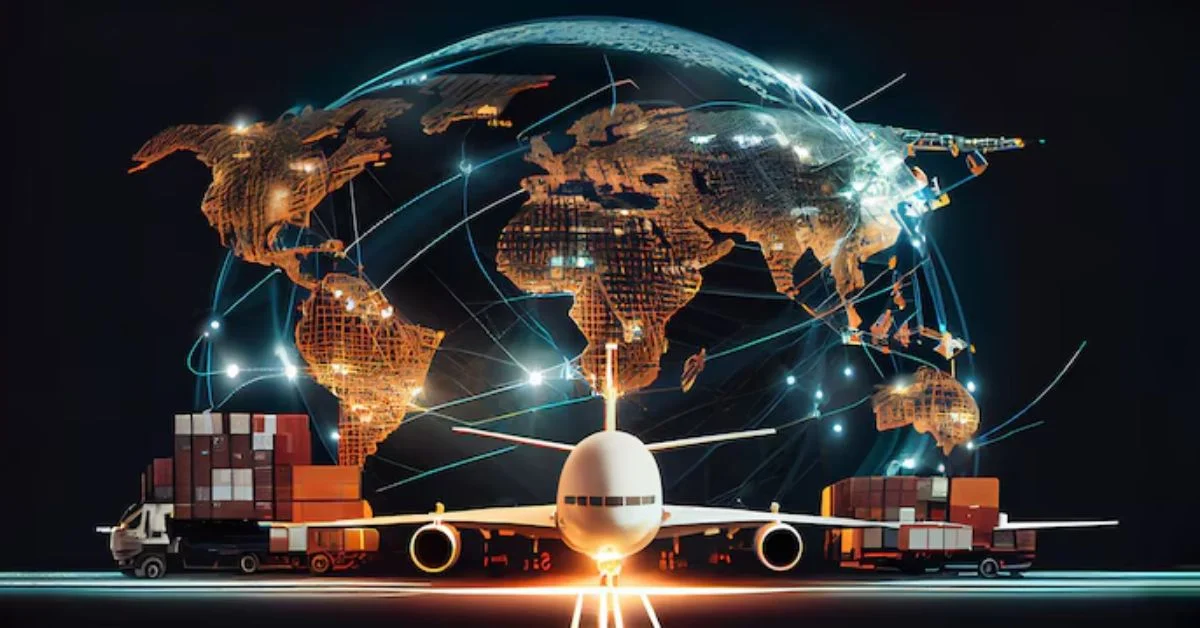In the sprawling ecosystem of global trade, where headlines favor electric vehicles, AI breakthroughs, and consumer platforms, the unsung machinery that keeps economies ticking is often the logistics industry. At the heart of this system lies a company that’s quietly reshaping the freight landscape: Orbitline Freight Logistics. A rising player in the international shipping and logistics space, Orbitline has evolved from a regional carrier into a sophisticated global network operator.
More than just a transporter of goods, Orbitline Freight Logistics is building the infrastructure for the next era of commerce—agile, data-driven, and sustainable. Its story is not merely about movement, but transformation.
Origins and Evolution
Founded in the early 2010s, Orbitline started as a modest freight forwarding operation focused on intermodal transport within Southeast Asia. The company distinguished itself early by prioritizing reliability and transparency, two qualities that are often elusive in the fragmented world of freight logistics.
From the beginning, Orbitline took a client-first approach, building long-term relationships rather than chasing market share. Its founder, a former port operations director, understood the importance of aligning every part of the logistics chain—from container yards to customs clearance—under a single digital command system. This vision laid the groundwork for what Orbitline would later become.
Technology as a Core Competency
Orbitline is not a technology company by name, but by operation. The firm’s proprietary logistics platform, OrbitView, offers clients real-time visibility into the status of their shipments, predictive analytics for route optimization, and automated documentation tools that reduce processing time by up to 60%.
More impressively, Orbitline has developed AI algorithms that help forecast delays based on geopolitical factors, weather conditions, and port congestion—enabling proactive rerouting and client notification. This capacity for foresight is what sets Orbitline apart in an industry often reactive by nature.
Sustainable Logistics in Practice
One of the defining features of Orbitline’s modern strategy is its commitment to sustainability. The logistics sector is notoriously carbon-intensive, but Orbitline Freight Logistics is working to change that. Through its “Green Freight” initiative, the company has transitioned a significant portion of its fleet to run on biofuels and electric power.
Additionally, Orbitline Freight Logistics invests in carbon offset programs and collaborates with clients to design shipping routes that reduce environmental impact. Its warehouses are solar-powered, and packaging recommendations include eco-friendly materials and consolidation strategies that minimize waste.
These efforts have earned Orbitline certifications from international environmental organizations, signaling that profitability and environmental responsibility can indeed coexist in logistics.
Global Expansion with a Local Focus
Orbitline’s global network spans over 80 countries, with strategic hubs in Rotterdam, Singapore, Los Angeles, and Dubai. But despite its global reach, the company maintains a distinctly local approach. Each hub is managed by regional teams empowered to make decisions that reflect the cultural and operational nuances of their markets.
This decentralized model allows Orbitline to be nimble and responsive, especially in emerging economies where infrastructure can be unpredictable and bureaucracy formidable. By adapting to local conditions rather than imposing a rigid playbook, Orbitline earns the trust of small suppliers and large corporations alike.
Navigating Supply Chain Disruption
In recent years, the global supply chain has faced unprecedented challenges—from pandemics and port closures to geopolitical instability. Orbitline has been at the forefront of adaptive logistics during this period.
When the Suez Canal was blocked in 2021, Orbitline rerouted dozens of shipments within hours using alternate rail and sea paths, mitigating client losses. During COVID-19 lockdowns, the company provided essential logistics for medical supplies, leveraging its air cargo partnerships to maintain critical deliveries.
Their crisis response team, established in 2020, now serves as a model for risk mitigation and agile logistics planning.
Training and Workforce Development
Behind Orbitline’s operations is a diverse and highly trained workforce. The company invests heavily in employee development, offering certification programs, leadership tracks, and cross-functional training. This not only improves service quality but also boosts employee retention in an industry plagued by high turnover.
Furthermore, Orbitline Freight Logistics has launched the Freight Forward Academy, an internal training institute that educates new entrants on everything from international regulations to digital tools. The academy partners with universities and trade schools, creating a pipeline of skilled professionals equipped for the modern logistics landscape.
Customer Experience as a Differentiator
While many freight companies treat logistics as a commodity, Orbitline positions its service as a partnership. Each client is assigned a dedicated logistics coordinator who serves as a single point of contact, guiding shipments from origin to destination.
The company’s 24/7 customer support and multilingual teams ensure global accessibility. Moreover, Orbitline’s customer portal provides real-time updates, instant documentation access, and a feedback loop that informs continuous improvement.
Innovation on the Horizon
Looking to the future, Orbitline Freight Logistics is exploring several frontier technologies. Among them are blockchain for tamper-proof shipment records, drone delivery for last-mile logistics in remote areas, and autonomous vehicle integration for long-haul routes.
The company is also conducting pilot tests with digital twin models, simulating entire supply chains to optimize performance and test scenarios in a virtual environment. This predictive modeling will allow Orbitline to preempt challenges and fine-tune logistics strategies with unprecedented accuracy.
Industry Recognition and Partnerships
Orbitline Freight Logistics’s achievements have not gone unnoticed. The company has received numerous awards for operational excellence, innovation, and sustainability. It is a frequent speaker at logistics and trade conferences, and a valued partner for governments seeking to modernize their trade infrastructure.
Their collaborative ethos extends to public-private partnerships, including projects to digitize customs operations and integrate smart border technologies. These initiatives underscore Orbitline Freight Logistics’s belief that logistics is not just about transport, but about enabling trade ecosystems.
Conclusion: Moving the World, Thoughtfully
Orbitline Freight Logistics is not the most famous name in logistics, but it may well be one of the most important. In an age when the physical movement of goods underpins everything from healthcare to e-commerce, companies like Orbitline form the backbone of progress.
With a blend of innovation, sustainability, and human-centric design, Orbitline Freight Logistics is proving that freight doesn’t have to be faceless. It can be intelligent, responsible, and transformative. As global trade continues to evolve, Orbitline Freight Logistics is poised not just to follow the future, but to lead it.
For more information, click here.









